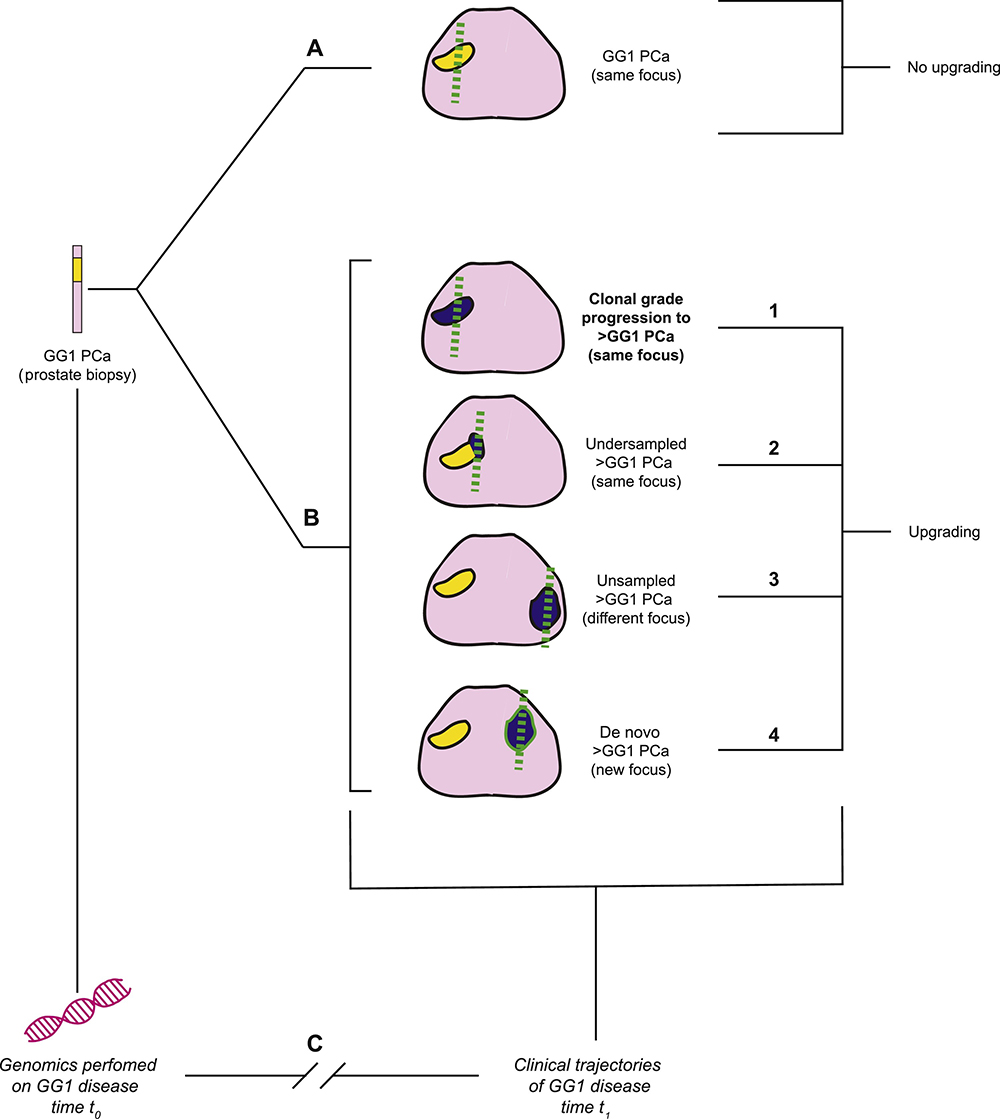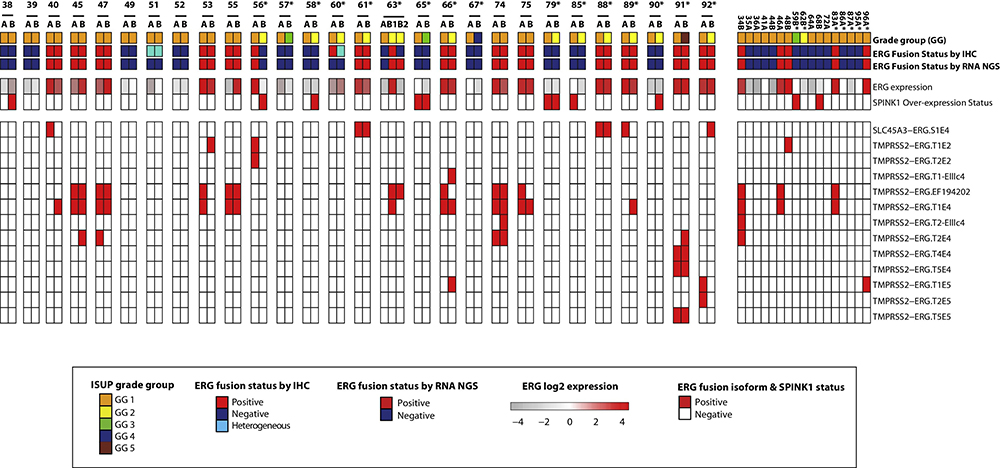News
Research from Dr. Udager Published in European Urology
by Camren Clouthier / Feb 1, 2021 A new publication, generated by Department of Pathology faculty members Drs. Aaron Udager and Scott Tomlins were successfully published in European Urology. The research highlights a longitudinal cohort study centered around the serial molecular profiling of low-grade prostate cancer in order to better assess tumor upgrading.
A new publication, generated by Department of Pathology faculty members Drs. Aaron Udager and Scott Tomlins were successfully published in European Urology. The research highlights a longitudinal cohort study centered around the serial molecular profiling of low-grade prostate cancer in order to better assess tumor upgrading.
The initial objective was to interrogate the molecular and biological features of low-grade PCa serially over time. The nested longitudinal cohort study occurred in an academic active surveillance (AS) program, where teams were on AS for GG1 PCa from 2012 to 2017. The intervention was performed by electronic tracking and resampling of PCa by utilizing magnetic resonance imaging and ultrasound fusion biopsy technology.
 "Our results indicate that, for the vast majority of prostate cancer patients on active surveillance, imaging-guided repeat biopsy of a specific tumor is feasible," notes. Dr. Udager. "Our data also shows that 'grade progression' of prostate cancer during active surveillance occurs by one of three mechanisms: 1) undersampling of the known low-grade tumor; 2) clonal evolution of the known low-grade tumor to a high-grade tumor; and/or 3) sampling of a de novo or previously unsampled high-grade tumor.
"Our results indicate that, for the vast majority of prostate cancer patients on active surveillance, imaging-guided repeat biopsy of a specific tumor is feasible," notes. Dr. Udager. "Our data also shows that 'grade progression' of prostate cancer during active surveillance occurs by one of three mechanisms: 1) undersampling of the known low-grade tumor; 2) clonal evolution of the known low-grade tumor to a high-grade tumor; and/or 3) sampling of a de novo or previously unsampled high-grade tumor. Ultimately, sixty-six men with a median age of 64 years underwent repeat sampling of a tracked tumor focus. IHC-based ERG fusion status was concordant at initial and repeat biopsies in 63 men (95% vs expected 50%, p < 0.001), and RNAseq-based fusion and isoform expression were concordant in nine of 13 (69%) ERG+ patients, supporting focal resampling. Among 15 men who upgraded with complete data at both time points, integrated DNA/RNAseq analysis provided evidence of shared clonality in at least five cases. Such cases could reflect initial undersampling, but also support the possibility of clonal temporal progression of low-grade cancer. The team's assessment was limited by sample size and use of targeted sequencing.
Ultimately, sixty-six men with a median age of 64 years underwent repeat sampling of a tracked tumor focus. IHC-based ERG fusion status was concordant at initial and repeat biopsies in 63 men (95% vs expected 50%, p < 0.001), and RNAseq-based fusion and isoform expression were concordant in nine of 13 (69%) ERG+ patients, supporting focal resampling. Among 15 men who upgraded with complete data at both time points, integrated DNA/RNAseq analysis provided evidence of shared clonality in at least five cases. Such cases could reflect initial undersampling, but also support the possibility of clonal temporal progression of low-grade cancer. The team's assessment was limited by sample size and use of targeted sequencing.—
The full publication in European Urology is available here.